It's On
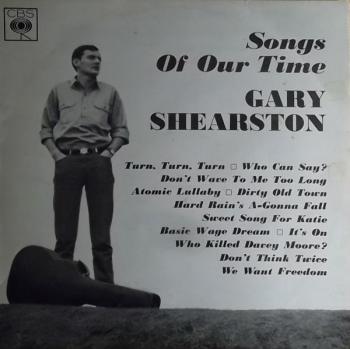
(1964)
Incisa da Gary Shearston e da Trevor Lucas
Incisa da Gary Shearston e da Trevor Lucas
On this single, featured the anti-war song "It's On" (CBS # BA-221124), composed by Don Henderson, who wrote many Vietnam War-related songs, discussed below.
While the Vietnam conflict was well underway in 1964, very few Australians participated until the Menzies government upgraded its commitment in April 1965 - so this is more of a Vietnam-era protest song, not specifically mentioning the conflict, but a representation of the early 60s anti-war movement in Australia. The lyrics revolved around the absurdity of conflict as two people get into a fight: "reason and logic are gone, winning the fight won't prove that you're right". The final verse criticised governments / politicians that "save on education and spend on defence".
Melbourne artist Trevor Lucas also recorded a version, on his 1966 album Overlander, and Raymond Crooke, on his YouTube channel.
Vietnam War Song Project (#12)
While the Vietnam conflict was well underway in 1964, very few Australians participated until the Menzies government upgraded its commitment in April 1965 - so this is more of a Vietnam-era protest song, not specifically mentioning the conflict, but a representation of the early 60s anti-war movement in Australia. The lyrics revolved around the absurdity of conflict as two people get into a fight: "reason and logic are gone, winning the fight won't prove that you're right". The final verse criticised governments / politicians that "save on education and spend on defence".
Melbourne artist Trevor Lucas also recorded a version, on his 1966 album Overlander, and Raymond Crooke, on his YouTube channel.
Vietnam War Song Project (#12)
A sad story you'll hear if you listen to me
(continua)
(continua)
10/11/2021 - 23:44
The Lost Soldier
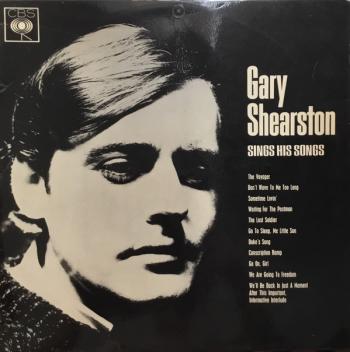
1966
Album: Gary Shearston - Sings His Songs
THE LOST SOLDIER was written from a newspaper report of the death of an Australian soldier in Vietnam. The song finishes with some of the statements made by his young wife about his participation in the Vietnam war. The tune for this song is adapted from a traditional song known as "Lord Franklin".
Gary Shearston Sings His Songs Album Notes
lyrics from Vietnam War Song Project (#19)
Album: Gary Shearston - Sings His Songs
THE LOST SOLDIER was written from a newspaper report of the death of an Australian soldier in Vietnam. The song finishes with some of the statements made by his young wife about his participation in the Vietnam war. The tune for this song is adapted from a traditional song known as "Lord Franklin".
Gary Shearston Sings His Songs Album Notes
lyrics from Vietnam War Song Project (#19)
In December 1964
(continua)
(continua)
10/11/2021 - 23:28
Truth Is
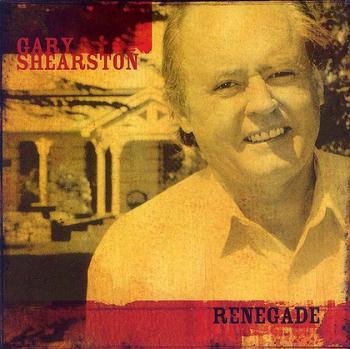
[2011]
Parole e musica di Gary Shearston (1939-2013), cantautore australiano.
Nell’album intitolato “Renegade”
Testo trovato sul sito dell’autore
Gary Shearston è morto nel 2013, ma ha avuto ancora tempo di realizzare quattro album dopo questo “Renegade”, dove il rinnegato è lui stesso che fa un bilancio della sua vita, un’esistenza piuttosto movimentata. Essere cantautore negli anni 60 – in Australia, come negli USA, come in Italia – significava spesso dare voce a delle istanze politiche, e anche Gary Shearston lo fece, schierandosi apertamente contro la guerra in Vietnam e la partecipazione dell’Australia a quell’aggressione americana, partecipando alle campagne in difese dei diritti degli aborigeni, prendendo posizione in favore del disarmo nucleare… Per queste sue posizioni Gary Shearston – che oltre tutto non aveva a difenderlo la notorietà di un John Lennon – pagò un prezzo piuttosto... (continua)
Parole e musica di Gary Shearston (1939-2013), cantautore australiano.
Nell’album intitolato “Renegade”
Testo trovato sul sito dell’autore
Gary Shearston è morto nel 2013, ma ha avuto ancora tempo di realizzare quattro album dopo questo “Renegade”, dove il rinnegato è lui stesso che fa un bilancio della sua vita, un’esistenza piuttosto movimentata. Essere cantautore negli anni 60 – in Australia, come negli USA, come in Italia – significava spesso dare voce a delle istanze politiche, e anche Gary Shearston lo fece, schierandosi apertamente contro la guerra in Vietnam e la partecipazione dell’Australia a quell’aggressione americana, partecipando alle campagne in difese dei diritti degli aborigeni, prendendo posizione in favore del disarmo nucleare… Per queste sue posizioni Gary Shearston – che oltre tutto non aveva a difenderlo la notorietà di un John Lennon – pagò un prezzo piuttosto... (continua)
For a while, I forgot who I was,
(continua)
(continua)
inviata da Bernart Bartleby 17/2/2016 - 09:33
The Conscription Ramp
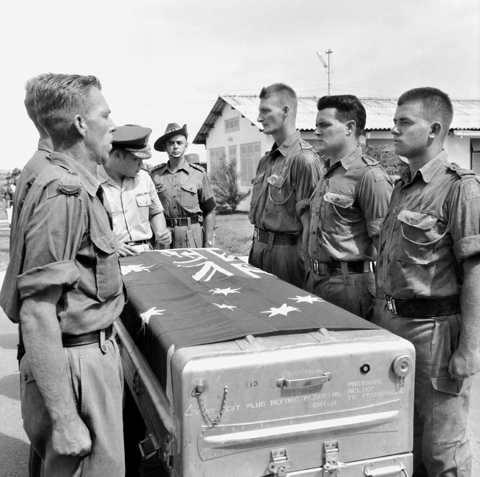
[1966]
Parole di Gary Shearston
La melodia è un adattamento della popolare inglese “The Derby Ram”
Nell’album intitolato “Gary Shearston Sings His Songs”
Testo trovato su YouTube come trascritto dal contributore, Artemis Fowl.
Canzone contro la coscrizione miliare voluta dal governo Australiano per sostenere la guerra americana in Vietnam.
Spesso infatti ci si dimentica che alcuni paesi mandarono in Indocina contingenti di soldati a sostegno degli USA. L’Australia, con 7.000 uomini, fu seconda soltanto alla Corea del Sud (48.000)…
“Perhaps this song, written a week after the announcement of conscription, anticipated the political and moral debates that were to come throughout Australia in following months. The tune is adapted from one of the fairly numerous Australian versions of an English folk song, The Derby Ram.”
(dalle note di copertina riportate sul sito dell’autore)
Parole di Gary Shearston
La melodia è un adattamento della popolare inglese “The Derby Ram”
Nell’album intitolato “Gary Shearston Sings His Songs”
Testo trovato su YouTube come trascritto dal contributore, Artemis Fowl.
Canzone contro la coscrizione miliare voluta dal governo Australiano per sostenere la guerra americana in Vietnam.
Spesso infatti ci si dimentica che alcuni paesi mandarono in Indocina contingenti di soldati a sostegno degli USA. L’Australia, con 7.000 uomini, fu seconda soltanto alla Corea del Sud (48.000)…
“Perhaps this song, written a week after the announcement of conscription, anticipated the political and moral debates that were to come throughout Australia in following months. The tune is adapted from one of the fairly numerous Australian versions of an English folk song, The Derby Ram.”
(dalle note di copertina riportate sul sito dell’autore)
As I was walking down the street while on my twentieth birthday-oh!
(continua)
(continua)
inviata da Bernart Bartleby 16/2/2016 - 14:10
The Streets of Forbes
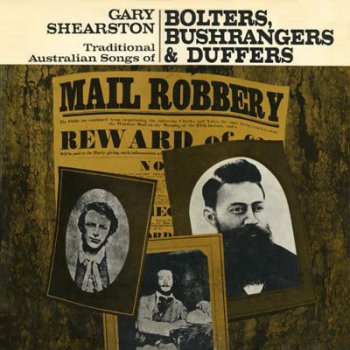
[1865]
Probabilmente scritta da John McGuire, cognato del “bushranger” Ben Hall, subito dopo l’assassinio di quest’ultimo da parte della polizia.
Canzone molto famose nella tradizione australiana, interpretata da molti artisti. L’ho attribuita al folksinger Gary Shearston perchè mi pare che la sua registrazione, nel disco "Bolters, Bushrangers & Duffers" del 1965, sia una delle più risalenti.
Con Death of Ben Hall e Dunn, Gilbert and Ben Hall, un'altra canzone dedicata al fuorilegge australiano Ben Hall e a tutti i “bushrangers” ottocenteschi, uomini che si ribellarono alla schiavitù, alla prigionia, alla povertà e al Potere e per questo pagarono, quasi tutti, con la vita.
Probabilmente scritta da John McGuire, cognato del “bushranger” Ben Hall, subito dopo l’assassinio di quest’ultimo da parte della polizia.
Canzone molto famose nella tradizione australiana, interpretata da molti artisti. L’ho attribuita al folksinger Gary Shearston perchè mi pare che la sua registrazione, nel disco "Bolters, Bushrangers & Duffers" del 1965, sia una delle più risalenti.
Con Death of Ben Hall e Dunn, Gilbert and Ben Hall, un'altra canzone dedicata al fuorilegge australiano Ben Hall e a tutti i “bushrangers” ottocenteschi, uomini che si ribellarono alla schiavitù, alla prigionia, alla povertà e al Potere e per questo pagarono, quasi tutti, con la vita.
Come all you Lachlan men and a sorrowful tale I'll tell
(continua)
(continua)
inviata da Bartleby 28/10/2010 - 14:28
Death of Ben Hall

[1865]
Album :"Bolters, Bushrangers & Duffers".
Come Dunn, Gilbert and Ben Hall, un’altra canzone dedicata ad un “bushranger”, banditi ottocenteschi eroi nella tradizione popolare australiana.
Bell Hall, il bandito gentiluomo che aborriva l’assassinio, fu ucciso a tradimento dalla polizia nel 1865.
Album :"Bolters, Bushrangers & Duffers".
Come Dunn, Gilbert and Ben Hall, un’altra canzone dedicata ad un “bushranger”, banditi ottocenteschi eroi nella tradizione popolare australiana.
Bell Hall, il bandito gentiluomo che aborriva l’assassinio, fu ucciso a tradimento dalla polizia nel 1865.
Come all Australia's son to me, a hero has been slain
(continua)
(continua)
inviata da Bartleby 28/10/2010 - 11:40
×
![]()

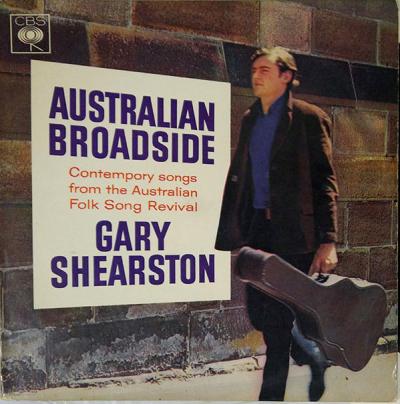
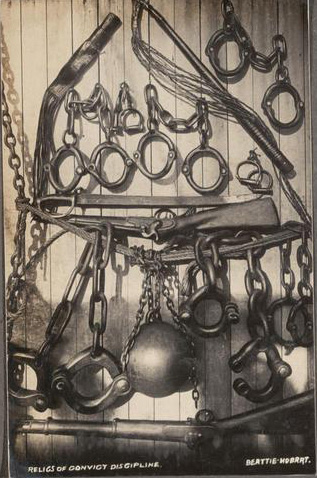
Album: Australian Broadside
Lyrics by Mona Brand
Music by Gary Shearston
According to the album notes, written by Edgar Walter (1965), the first song "Twenty Summers" was composed by Mona Brand: "Twenty Summers: Mona Brand's words were written as a comment on the recent decision to conscript young Australians for military service overseas. But they are a protest not so much against that decision in itself, as against all warfare.
The melody is by Gary Shearston".
Mona Brand was a theatre playwright, who taught English in Hanoi with her husband Len Fox in the 1950s.
It told the story of a young man, 20 years old, drafted to war: "Johnny is called for a soldier today". His father died in a previous war: "rain in the jungle when Johnny was born, the day that his father lay dying at dawn".
Vietnam War Song Project - #17